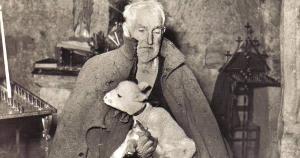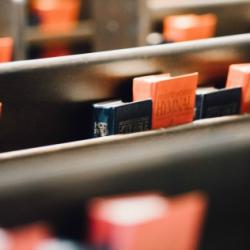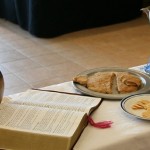 Individualism Destroys Love and the Body – 1 Thessalonians 2:17-3:13
Individualism Destroys Love and the Body – 1 Thessalonians 2:17-3:13
There are a lot of myths that we receive in American culture that are not necessarily consistent with the life in Christ revealed in the Bible. One of these is what I call the Myth of Graduation.
We like graduations, and with good reason. Graduations mark the times when we have graduated or progressed from one stage of life to another. So we graduate from high school or college, not only because we have survived a particular course of study but because we are about to move from one stage of life to another. So graduations like these are reasons to celebrate.
But sometimes we believe that when we graduate from either high school or college or from our parents’ household that we also graduate from community, that is, that we have now progressed to the point that we should be able to stand on our own two feet, completely alone. It’s true that as we get older we should be more independent of our parents in being able to make choices and live without their financial support or direct oversight. It’s true that when we marry we must leave and cleave. But it’s a tragic mistake to think that such a graduation is a Graduation to Individualism, which is the cultural myth we sometimes swallow.
In fact, this Graduation to Individualism is actually a kind of regression. Part of the first 18 or more years of our life were hopefully spent teaching us not just to “grow up” but also to “grow out,” that is, to grow in our ability to live together in love in a community where each carries his own burden but also carries the burdens of others.
One of the things that kids growing up most reject is their parents’ attempts to “check up” on them, to make sure they are doing well. In 1 Thessalonians 3, St. Paul makes clear to the Thessalonians that he doesn’t believe they have or should have graduated from the need to have others check up on them. On the contrary, Paul is like a mother hen to his churches, or like a father checking out the prospective boyfriends of his daughter.
He sends Timothy to “check up” on the Thessalonians by establishing them and encouraging them (verse 2), so that no one would be shaken by the afflictions they were experiencing (verse 3.) Previously, Paul had told the Thessalonians that he had hoped to come check up on them himself but could not. So instead he sends his best agent, Timothy, and puts him on the case.
Like any parent, Paul is overjoyed to be told that his children, the Thessalonians were standing firm in faith and love (verse 6.) What must have rejoiced his heart just as much was to hear that they had fond memories of him, as he did for them.
I wonder sometimes how well American churches are doing in checking up on their members. On the one hand, it’s hard and thankless work for pastors to check up on their parishioners. In some cases, this is not even a central focus of the local church, which may be so large that members are relatively anonymous. On the other hand, parishioners are the ones who are most resistant to being “checked up” on. We don’t want the pastor “interfering” in our lives or “hassling” us, as if we weren’t self-sufficient or doing O.K. by ourselves. Should a pastor do the very duty of “checking up,” which he has sworn to do and for which he has taken vows, then watch out! That pastor may be just about to lose a sheep to another less watchful shepherd and flock.
The truth is, often we aren’t doing well and have wandered like lost sheep, and that is exactly why we don’t want any pastor “snooping” around our homes and lives. In acting this way, we have become like Adam and Eve who only hid from the Lord when they were ashamed because they knew they had done something wrong and were spiritually naked before Him.
But we have a godly obligation both to check and be checked. God has bound us to a local Body of Christ, to which we are to be submitted. We are to welcome our pastors’ checking into our lives: we should rejoice that they care enough to correct or rebuke us if they have to. And we should all be willing to do the checking ourselves. It is not only the pastors who have an obligation to check into the well-being of church members: it is the ministry of every member. Those who are your neighbors in your church, those whose lives are closest to yours, are the ones you should be checking on, to make sure they are standing fast in love and faith.
Only if we “interfere” by “checking on” each other in godly love will any of us be able to stand. And only if we “check on” each other will we learn to live in the godly love and unity that is to characterize each and every church.
Prayer: Father, may You direct me in my way. May You cause me and those in my church to increase and abound in love to one another and to all, just as St. Paul and the Thessalonians loved each other and checked on each other. May You establish my heart in holiness before You at the coming of our Lord Jesus Christ with all His saints.
Points for Meditation:
- Reflect on your attitude toward being “checked up on” by other Christians.
- Is there someone you are supposed to be checking on that you have neglected to love in this way?
- In what ways does your local church encourage or discourage members to keep each other accountable?
Resolution: I resolve to open my life to having other Christians, especially in my church, come close enough to my life that they are able to assist me in my Christian life.
Shepherd and Sheep – U.S. Public Domain











